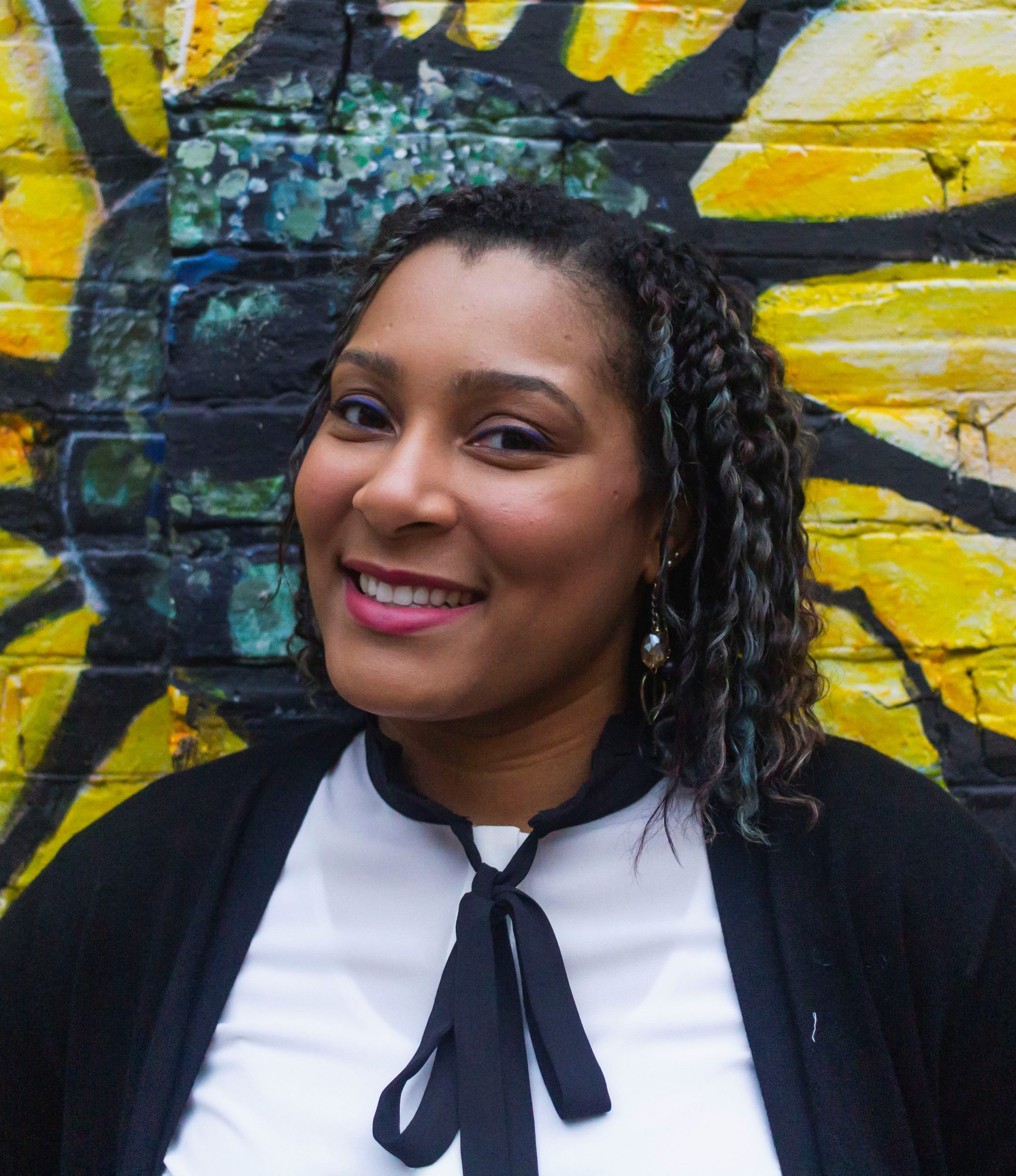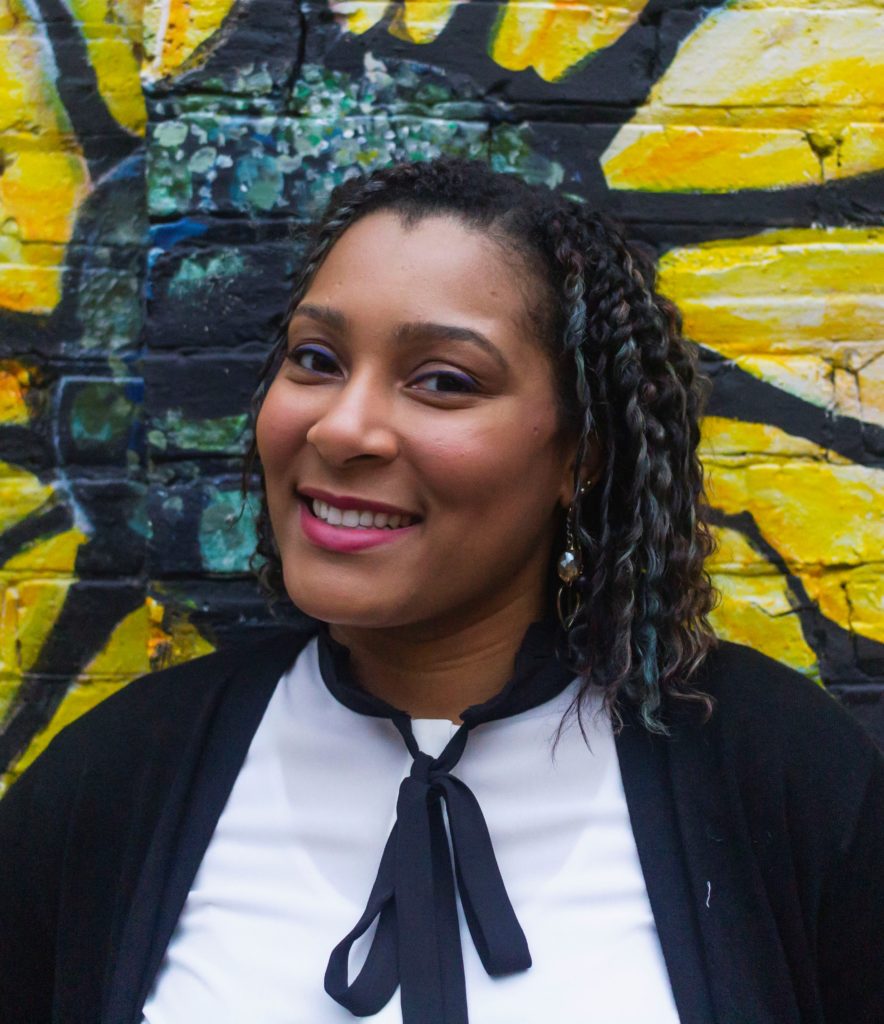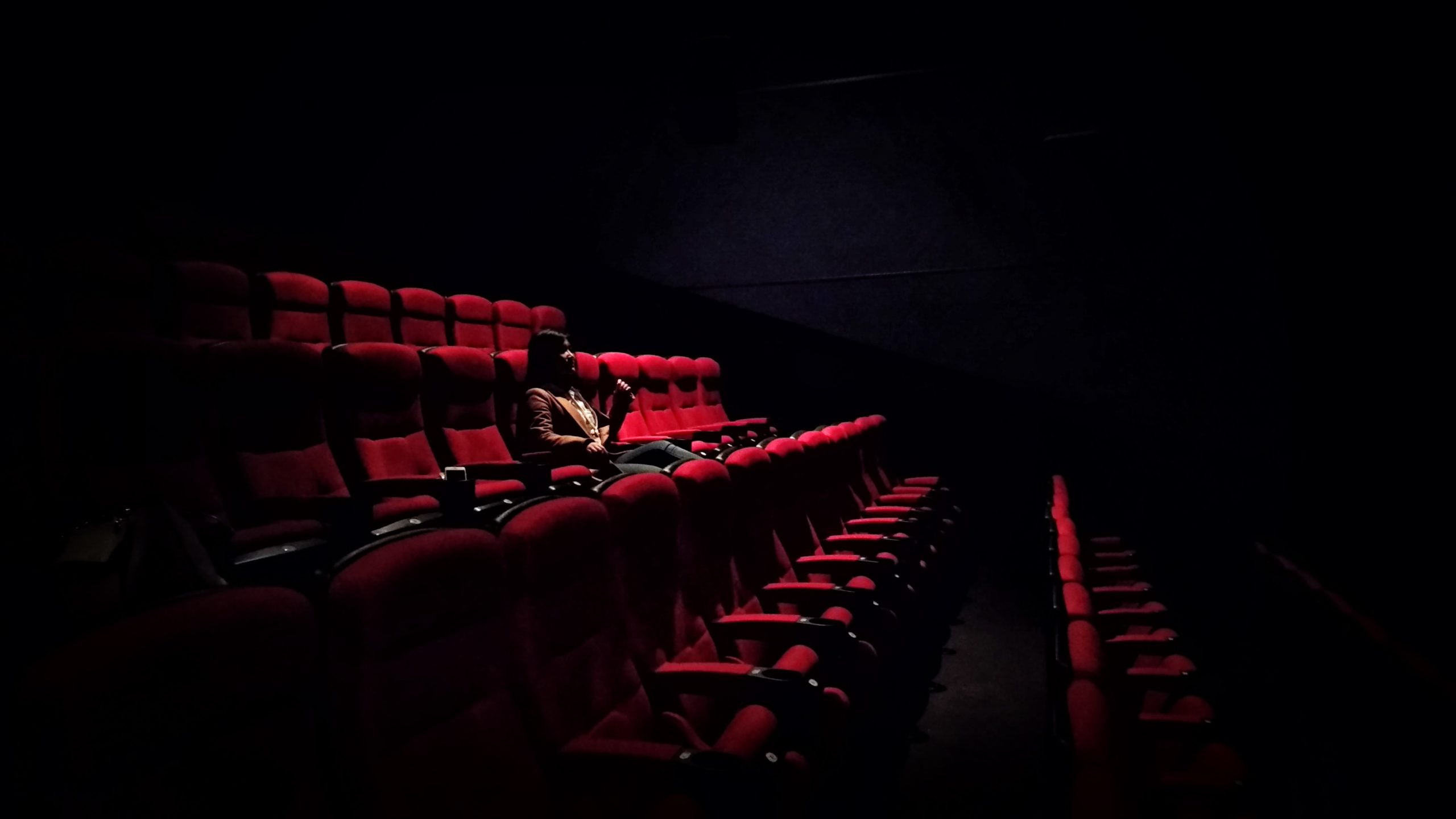
Critic Spotlight: April 2021
Kelundra Smith
Atlanta critic
Outlets: American Theatre, Atlanta magazine, ArtsATL

You’ve been incredibly active in your career, and hustle like nobody’s business. Where do you get your drive and motivation?
I think there’s a competitive part of me that wants meritocracy to be real. I like proving that I can do what people say I can’t.
I went to graduate school at Syracuse University S.I. Newhouse School of Public Communications. On the first day of journalism bootcamp, our professors showed this satirical video of a green journalist who wanted to change the world and write for The New York Times. That was totally me. They laughed and told us that most of us would never write for The New York Times and that we’d end up a general assignment reporter at a small town daily. I had my first Times byline five years later.
I’m a Black woman from the South. I’m 5’2″ and can be shy sometimes. No one sees me as an artistic authority or expert on anything, and yet here I am. I am my own competition.
Do you feel you’ve succeeded, based on how you define that for yourself? Or are you so focused on the next goal that you just keep going?
I am a storyteller first, so I am constantly looking for new ways to tell stories. Journalism is just one way for me. I’ve recently started exploring writing scripts. I’m also dabbling into writing children’s books and YA fiction.
For me, it’s not about a pinnacle of success in journalism. Though having something in The New Yorker would be nice, it’s about being true to the stories I’ve been called to tell and telling them well. I tell stories about artists from marginalized communities. Every byline is a success, because I have to fight for it every single time.
How do you see your role evolving as an arts journalist and theater critic post-pandemic?
When the pandemic started and everything shut down last year, there were no assignments. For the first time in almost a decade I had no plays to see on the weekend. That’s an incredible sacrifice — to spend your twenties reviewing theater on the weekends while everyone else is partying, dating and traveling.
The pandemic gave me the opportunity to assess whether how I was spending my time aligned with my values. Things were out of whack. Over the past year, I’ve had the chance to practice radical self-acceptance, write for myself, rest and spend time with friends and family. My relationship to my work is forever changed because of that.
I’ve also had the chance to tell more meaningful stories. The pandemic brought inequities to light and there wasn’t anything to distract us from them anymore. I am proud of everything I wrote last year because I got a chance to tell in-depth stories that matter far more than any review I’ve ever written.
What is the best piece of advice you’ve ever been given?
When I was about 23 or 24, Stephanie Cash, the former editor of Art in America and Burnaway, told me that if you want a husband and children you have to put as much energy into having that as you do your career, otherwise you won’t have it. She was speaking from her own experience of marrying later than society deems reasonable and becoming a stepmother.
I think women journalists and women comedians face a lot of the same challenges. What the work requires, what the calling requires, and what people have come to expect from relationships are all so different. I’m still working that out, but what I know for sure is that a job is not a life and it will never fulfill you as much as genuine human connection.
As the first co-chair of ATCA’s EDI committee, what are some of your favorite achievements of the group? What were we not able to accomplish that you hope the next regime will achieve?
I am so grateful for the people I have had a chance to dream with and impact through the EDI Committee. In our first meeting at Milwaukee Rep, all we had was ideas and tenacity. This committee has reinforced for me that those are the only things you need to make a difference.
I am incredibly proud of the diverse critics list, the connections we’ve helped make between writers and editors, and the sessions we’ve hosted at ATCA gatherings. Most importantly, I’m proud of how we’ve made women, LGBTQ+ people, people of color, people with different abilities — how we’ve made so many people feel seen.
What I hope for the future is that the ATCA membership becomes more diverse in every way and that we establish a pipeline program that gets young writers trained and published before they graduate from high school.
Everyone talks about the fact that we need more critics of color. With outlets cutting back on theater and arts writers, what do you tell young writers of color about their prospects of being an arts journalist?
There is no shortage of young Black people who are interested in arts journalism and criticism. They are everywhere. However, there are economic realities tied to racism that people of color have to grapple with differently. There is a pressure to perform financially after college graduation, to pull an entire generation out of poverty with one degree. That’s a lot of pressure at 22 or 23 years old, and that stops many from moving forward in the field.
There are still some editors out there who say that if you are really serious about it, you’ll move to some big city and make it happen. I can’t imagine being a young woman and moving to a major city with no financial plan or safety net. It’s dangerous, hence the hashtag #MeToo.
Then, if they do move forward, the gatekeepers have a way of hazing you. It’s not a meritocracy. How many emails does Kelundra Smith have to send to get a reply from a PR person versus Amanda Smith, for example? For this reason, I have never had a long term contract or full-time editorial job with a publication or other journalism outlet. All of my work has been freelance, supplemented by full-time jobs and teaching theater criticism workshops over the years.
That said, I tell young people, especially those who are Black, to follow the stories. Face fear without disguise and do it anyway. I once heard the spiritual teacher Iyanla Vanzant say, “When the Lord won’t let you sleep, there’s a book there.” Write so you can sleep at night and your readership will find you.
What makes the Atlanta theater market special?
Georgia is 49th in arts funding. The Georgia Council for the Arts supports more than 500 arts organizations with less than $2 million a year. What makes the Atlanta theater market unique is the tenacity. We don’t need elaborate sets and expensive costumes. Artists here make incredible art out of whatever they can get a hold of. It is truly by the people for the people.
This city also has an affinity for new work and giving young artists a chance. So many household names, such as Bekah Brunstetter, Tarell Alvin McCraney, Jireh Holder, Topher Payne, and many more got their start here. Because of the film industry, before the pandemic, I was seeing people I interviewed years ago as series regulars on BET, HBO, Starz, Netflix and Hulu. In Atlanta, if you’re scrappy, you can make it.
Would you share two or three of your favorite pieces of writing?
June 10, 2020: “Atlanta theaters, I need your imagination” in Arts ATL
May 4, 2018: “A Boom in Filming Gives Atlanta Stage Actors Room to Maneuver” in The New York Times
Oct. 27, 2020: “The Southern women who shaped Aunjanue Ellis” in Bitter Southerner
— Interview by David John Chávez.





Sorry, the comment form is closed at this time.